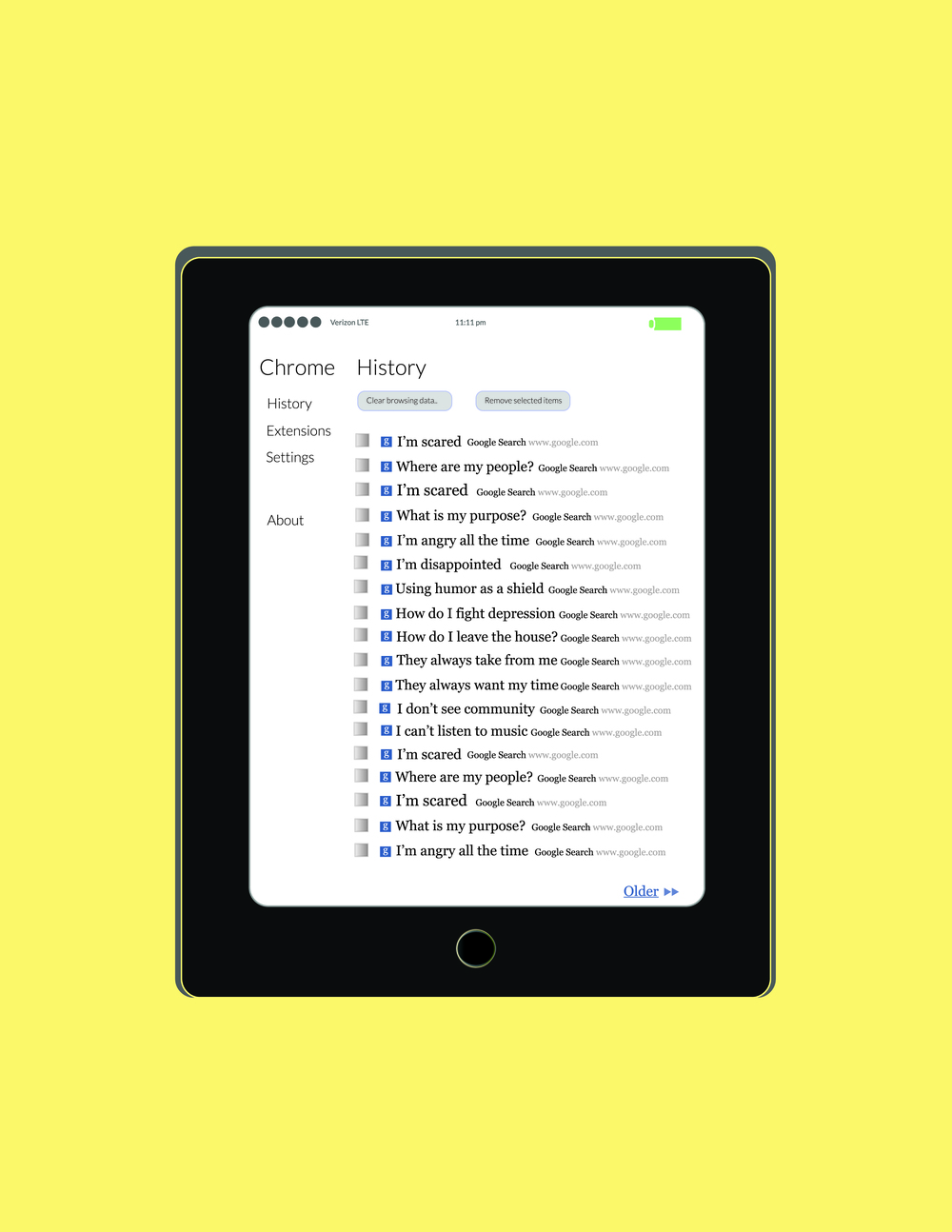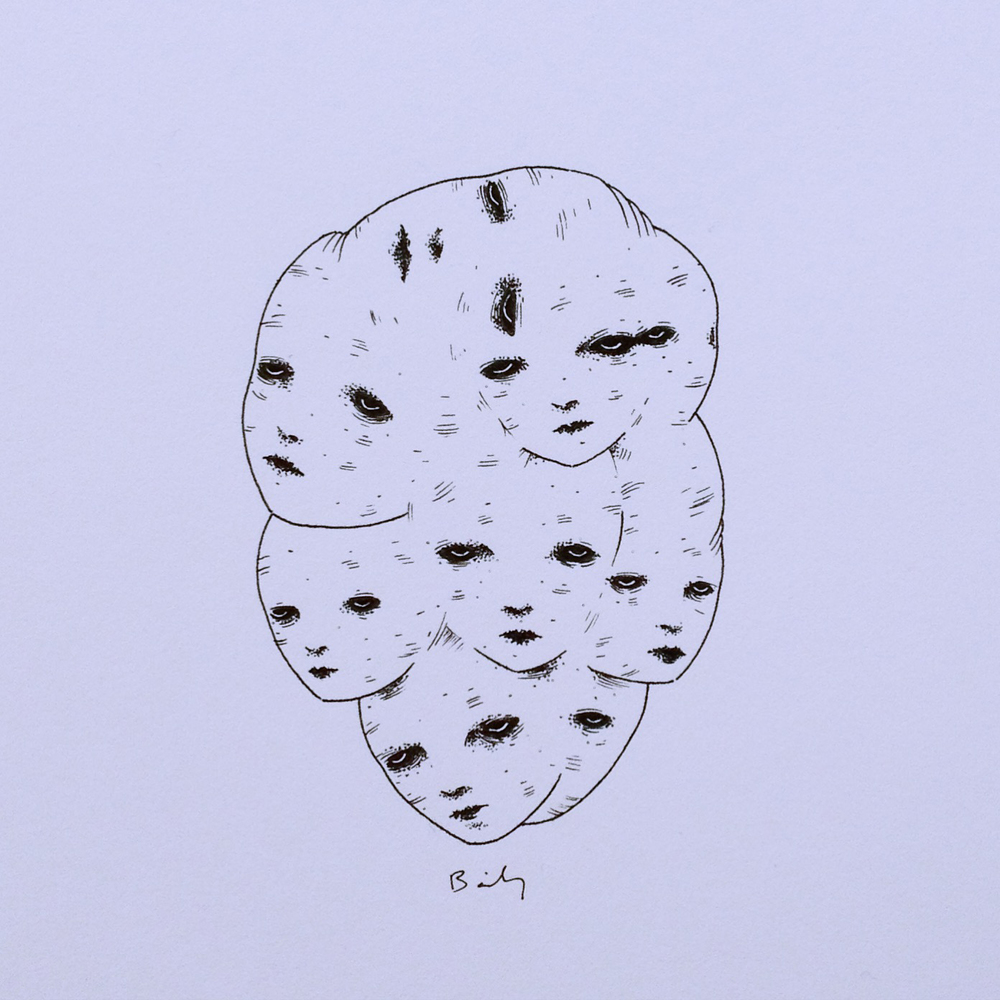
Attachments are broad and complicated and sometimes there is not enough bandwidth to hold us. Physical or digital or emotional. Sometimes the hyperlink leads to nothing. Sometimes the file is corrupted. Sometimes they are mislabeled or unedited or the version that we didn’t want anyone to see. Attachments can be embarrassing or exposing or exposing of our own error.
We are constantly fighting to transcend the politics of identity that society attaches to us-- how we were born and how we are supposed to live. To make visible the attachments we want to use as signifiers, what we choose to encode in the endless approach to our truer selves. To create new bonds across time and space to a person, to an object, to an idea.
We attach fragments of ourselves to our confidants and our public. Equally interesting is what we choose not to attach. What we withhold or what we encrypt.
To remain in the flux of attachment and detachment as we evolve. A file is static but we can shed them as necessary, while still recognizing the imprints of our former selves that are dragged across the surveillance grid. Each attachment we make is a risk, but who can live without risk?
TUF is an affiliation that each member chose to trail their moniker, their digital presence, their talents and devotions. Our attachment to each other allows the perpetuation of our common mission and goals as artists and musicians and writers and designers. Here are some things we’ve been working on.
Much love,
The Editors
Úna Blue



Bristol Hayward-Hughes

Katherine Humphreys

Sofia Lee


Andrea Friedman
Madeline Franks
Danae Harrison-Corey
Bailey Skye
Gia Valente

Neon Saltwater
we are particles, floating through
space, attached
for a moment in time
giving
love.
receiving it.
then
drowning in grief.
we are separate again.
we are our whole
separate
selves.
- to attach
Simone Pierson
Lisa Hammond
The following is an excerpt from a collection of narratives about instances of flirtation
with pronoun in place of name. This collection posits flirtation as something
memorable and/or meaningful but not necessarily leading to any end, or confined
between any prescribed genders.
2.
Her eyes—I could hardly see past the pink light of the room & such difference in our
heights. I wondered how she had chosen me, when I was having trouble making her
out without seeming rude. This morning I’d been reading about falling in love and it
had felt painful, huge, desireable, and terrifying. Something I had finally tasted,
pulling back at all the wrong times, not folding myself into loves reckless abandon.
She kept leading me back and forth across the room. She was embarrassed to be
grinding her small body against my large one? Trying to hide me but I’m so large
and uncontrollable? And what did she see? I could hardly focus, following her hand
through the crowded dance floor and up onto the stage with the neon green
imitation ice blocks. I wanted to get off the stage. I felt awkward in the permissions I
was taking, she was taking, and who was this girl? Melissa had been telling me
earlier that if I moved to the city I would have all the one-night-stands I wanted. She
said it with such a straight face, with such joy that she must believe that was all I had
ever wanted. I had to laugh. This girl, who kept claiming that it wasn’t about sex that
she just wanted to talk as she pressed her small body roughly into mine, teething at
my nipple through my shirt, the night was pouring through her. She was opened
wide, boldly claiming gateways to alternate realities in which I lived with her in her
New York apartment and helped her bring her son to New York from Ecuador. She
took what she wanted, grabbing me out of the crowd, sipping from stranger’s beers,
throwing herself in the middle of the street asking, begging to be filled with the
spirit of love. She took what she wanted because nothing was ever given to her. I
pulled her by the arm out of the street and she kept running back, ready to be
engulfed by the city. She looked like a twelve-year-old tomboy, unaware of how time
washes you away. I can’t even remember what she was wearing, maybe a polo shirt,
tight jeans, and those fashion moccasins from the early 2000s .
Is this what it’s like to live in the city? Fusing so intensely--ego deconstruction and
reconstruction each time you meet someone? Each time you want to take someone
home? But I was so large! Each deconstruction was sure to be a disaster, how could I
pick myself up from such far-flung remnants of myself? Continually piecing such a
monumental structure back together?
Leaving her behind was a struggle like a knot accidentally tied too tight. She wailed
against my departure, against the pain of rupture. She knew once I left everything
would leak out from inside her, all the flashes of imagined utopias, falling
compacting, crashing. She couldn’t ask me to be faithful to her, I couldn’t buy her
groceries, I wouldn’t be there waiting in her bed when she got home from work. She
pulled at me, leaning back with all of her weight, desperately using any excuse she
could to get me to stay. Spewing every type of logic she could think of attempting to
quell my imagined fears. ‘We don’t have to have sex’. It’s funny because that’s what I
wanted actually... I wanted the moments of nakedness, the moments of ecstasy. I
wanted to be inside her and run my hand down the front of her smooth body,
fingers rippling over her taut nipples. ‘We don’t have to have sex’. It made sense that
she thought that was why I was holding back, but really it was the fantasy she had
already created that I was scared of. I was scared of waking up in her bed, when
she’s all closed down with bits of the city lodged inside her. I was scared of the
meanness of the comedown.
How could such immediate fusion not be painful?
She tried to literally drag me up her stairs, she grabbed my phone and sprinted. She
called me a bitch. She told me I was making the wrong decision. Each grab, each
persuasion cementing my desire to sleep in my own bed, wake up and make
breakfast with my friends.
I’m a bitch. I don’t want to live in her alter-reality.
What I wanted, was to crawl into bed with the girl who I was staying with. I wanted
to take one look at the bed that she made for me, admiring it, and to pull myself up
into her loft. Maybe I wouldn’t say anything. I would just jump into her bed and pull
her close to me, spooning her body, like I had before, and say “can I sleep here?”
whisper into her ear, close, hot, breathy, and when she looked up, there would be
play in my eyes.
‘The New Love Card’ is the one I pulled at this strange yoga dance class that I went
to. The rooms there had tall ceilings and black floors. The instructor played songs by
Rhianna and Billie Holiday while we stretched, and it ended by each of us getting a
perfectly ripe peach and bringing home the intention card we had picked. Who had I
become? I needed to stretch, needed space to spread my limbs, to move, to sweat. I
bought into the ‘intention card’ spirituality fed to me by white yogis in Brooklyn. I
was the only white person in the class other than the instructor and one other
professional looking grunge/punk girl. Who knew that look could be so clean? I hold
the card and look at it now. Amazing how such a cheesy card could activate such
strong emotionality: ‘New Loves’: opening myself to new environments, new
friendships, new loves.
I couldn’t really believe that BIG LOVE, the way people talk about LOVE, ‘the L word’,
that sticky loaded four letter word, I couldn’t believe that was coming into my life.
All I wanted was the fantasy moment, that clicking where two people just work, and
can open their legs, take off their clothes and just be in their bodies. Where for a
moment, many hopefully ☺ they can be comfortable in opening and closing, in
running hands down each other’s bodies, hungry, voracious.
Grey Ellis
Nicole Carr

Zarina Khakberdieva
COMMUNICATING IRL
BY TDK
We have now settled into the twenty-first century where communication patterns that were introduced at the end of the last century have cemented themselves into the fabric of our society and reality. There has been an identifiable shift in the way we communicate and the way we seek connection with others that is having a detrimental impact on the progression of our human family.
Now we, as a society, have taken the concept of overindulgence, what we think we desperately need, and have applied it to how we communicate. More. We want more. We want to show more. We want people to hear us more. Instead of speaking and communicating with direct and intentional impact, we share, we tweet, we post but yet, still, somehow, it doesn’t feel as if we are speaking, as if we are engaging. Each of us are alone on our soapbox, preaching to the world the problems we see, the problems that affect us from the most macro to the most micro. We all have our voice and damn it, it’s important so it better be heard. “I am important! Hear me! Listen to me!” We beg to be noticed. We beg to be heard, to be understood, to be recognized for the righteousness of our beliefs. But something’s wrong with this machine. It’s not producing the desired results. What’s going on here? Why are we not being heard?
In the long-winded romance that Internet connectivity has brought us, we’ve left out one crucial aspect of this entire relationship. Our society has been so infatuated with communication, with sharing our own perspectives, that we have completely overlooked that there is another component in all of this. People are so focused on communicating a message, and being the first or most “liked” to do so, that we’ve forgotten the whole reason why we’re communicating in the first place: for a message to be received.
Somewhere, somehow, we lost sight of the fact that communication and connection is a two way street. It is a partnership in the most simple and purest form. If you take a look at the current status of communication, you will find that it is ego driven like never before. Yes, the ego is ever present and there’s no getting around that, but something is different this time.
So much emphasis has shifted towards HOW we communicate rather than WHAT we are communicating. It has become standard practice for companies, no matter the industry, to have a “presence” on Facebook, Instagram, Twitter, Pinterest and whatever else we’re being told is the most popular way to connect with your consumer to increase “awareness.” Oh, the irony!
We have become so focused on communicating in the digital realm that we have let slip the nuances that make up communicating in “real life.” We have applied the same concepts of communication that have been deemed “successful” in the digital realm and expect them to translate to this realm of more fully encompassed energy.
All is not in vain, however, as we have come close to perfecting the how of communicating. We have made it as easy as possible for the ego to be heard. Now, it’s time to turn our focus on being conscious of how the communication is received. This of course has implications regarding the manner in which we communicate, the vessels we choose to occupy. But we must also be aware that receiving information is a process.
The mode, for all intensive purposes, is our voice, however you choose to express that – whether literally by speaking, through typing or through sharing it in a visual format. What is important though, is what our voice holds – the meaning, the intention, the energy we put into it – and how that “what” is received and processed by our intended parties.
Our words are vehicles for the energy we feel and create within ourselves. You can hear irritation in somebody’s voice. You can hear sadness and regret and everything along the entire spectrum of feeling. Without making the conscious decision, we put feeling into anything that holds an ounce of meaning for us. People seemed to have forgotten that.
With the absence of conscious, intended feeling as the core of our communication, we can’t seem to remember what it feels like to be on the receiving end of such a phenomenal thing. As a result, we have grown accustomed to receiving communication that has little or no feeling; a waste of time and energy but we hold onto it because it’s the only thing we have in this age of post-digital revolution. This has become our standard, and that is not ok. That will lead to our demise. It’s that simple.
What differentiates us from the rest of the living community is the degree and ease with which we communicate naturally. Yes, the world evolves, technology develops, but that is no reason to leave the heart of the matter to the winds of time. We must hold on to it, nurture it and allow it to grow.
We have convinced ourselves that this is how we humans are, that this is our nature. But it is not. It is in our nature to sense and to feel and to share that feeling with the rest of our human family. The intention behind our path is correct. We love to share. The structure is there for us; it has been created by the collective human consciousness. Now it is on the ego to fill it with meaning.
But of course, at the root of all this is our basic, instinctual desire to feel connected, to feel a part of something. So we talk until our voice is hoarse. We type until paralyzing carpal tunnel sets in. We like and friend and tweet until the entire day is wasted away. We must change this. This relationship is not working for us. We love you but it’s time to refocus on our collective, connected growth IRL.
Tane Kaymaz

Jeanne-Marie Joubert

Annie Holden

































